|
Western countries, notably the US and France, are making it increasingly clear that they want to scale back their current commitments to fighting jihadist movements in Africa. Two recent attacks by al-Shabaab have raised fresh questions about what the new approach might mean. As Stig Jarle Hansen explains, the attacks illustrate why leaving the scene poses numerous security dilemmas for the West.
Rwanda has made major strides in building public trust in the health system, and in improving health outcomes such as reducing mortality in children under five. In today’s episode of Pasha, Agnes Binagwaho discusses how the country achieved these significant milestones, and the challenges it still faces.
|
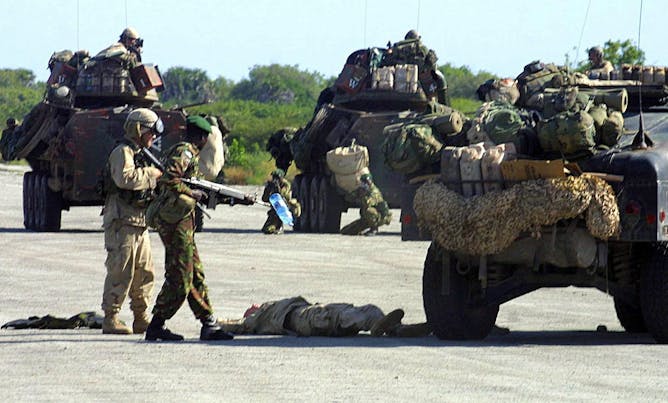
Kenyan military troops and US marines carry out a joint military exercise in Manda Bay near the coastal town of Lamu.
EPA/Simon Maina
Stig Jarle Hansen, Norwegian University of Life Sciences
Declining US involvement in The Horn would leave a vacuum that others can fill.
|
Health + Medicine
|

Sheetal Soni, University of KwaZulu-Natal
The debate about gene editing will help shape the future of the human race. But how should the discussion get started?
| |

Lyn Wadley, University of the Witwatersrand; Christine Sievers, University of the Witwatersrand
The charred remains of root vegetables found at Border Cave help us understand how early humans survived and thrived.
|
|
|
Politics + Society
|
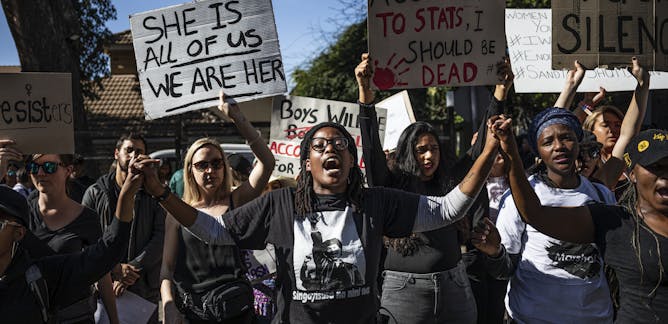
Lindy Heinecken, Stellenbosch University
Underlying direct or personal violence is structural violence that is entrenched in unequal power relations in society.
| |
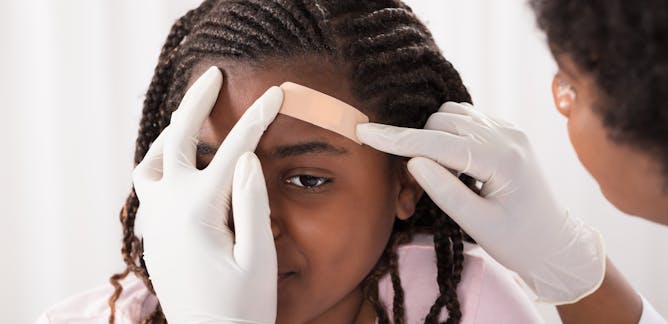
Shanaaz Mathews, University of Cape Town; Ashley Van Niekerk, South African Medical Research Council
The causes of injuries to children are often linked to the circumstances in which people live.
|
|
|
Podcasts
|
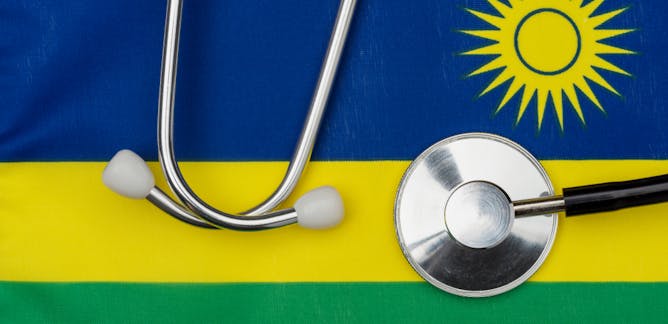
Ozayr Patel, The Conversation
Rwanda has developed a strong, decentralised health system and addressed many of the major financial and geographic barriers people faced.
| |

Ozayr Patel, The Conversation
That future is one of ever-changing data, analytics and computer infrastructure.
|
|
|
From our international editions
|

Scott L. Montgomery, University of Washington
Tensions between Iran and the US have spiked, but oil prices have barely budged. Why not? And is the oil markets' muted response an accurate reflection of the rising tensions?
| |

Gang Chen, FAMU-FSU College of Engineering
The solids from wastewater plants are usually dumped into landfills because they are contaminated with heavy metals. Now there is a way to remove the metals so the waste can be used as fertilizer.
|
|
|
En Français
|
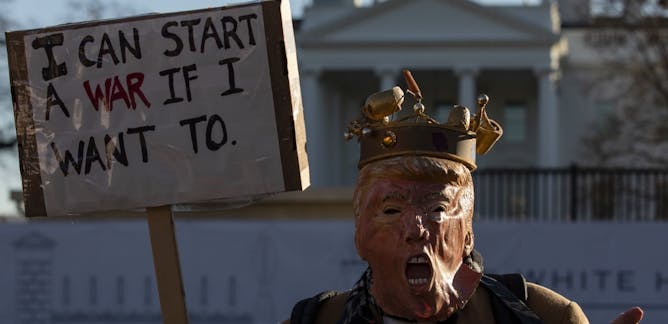
Olivier Corten, Université Libre de Bruxelles
Les États-Unis ont tué Ghassem Soleimani sur le territoire irakien, et l’Iran a réagi en visant des bases américaines situées en Irak. Victime collatérale de cette affaire : le droit international…
| |
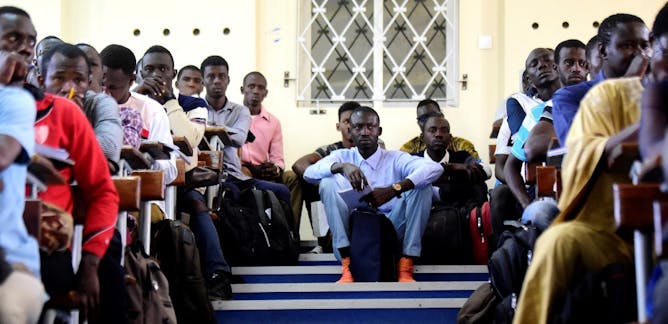
Jean Alain Goudiaby, Université Assane Seck de Ziguinchor
Malgré les réformes de l’enseignement supérieur au Sénégal, l’offre de formation demeure insuffisante et n’est toujours pas adaptée au marché de l’emploi.
|
|
|